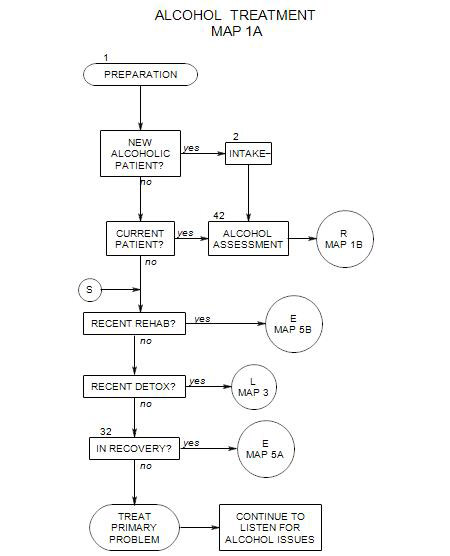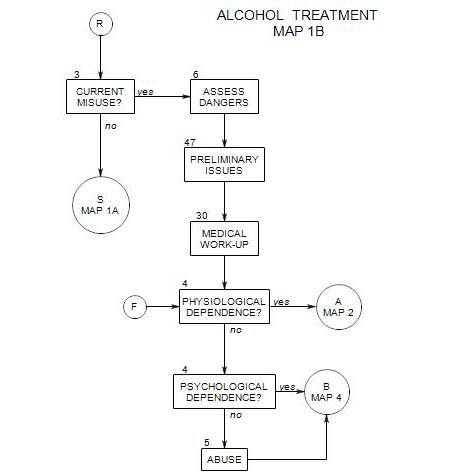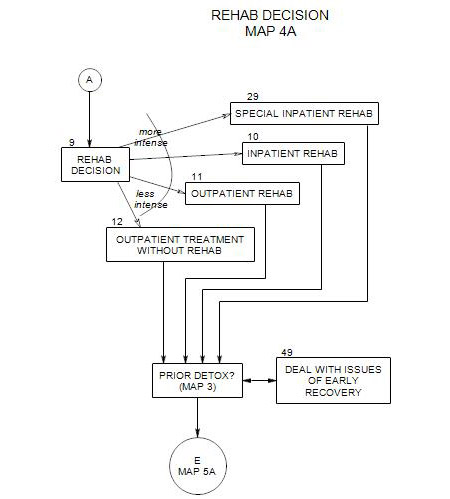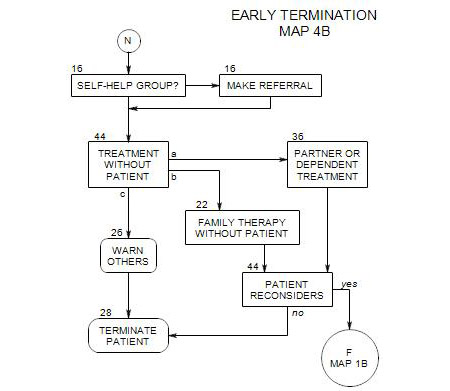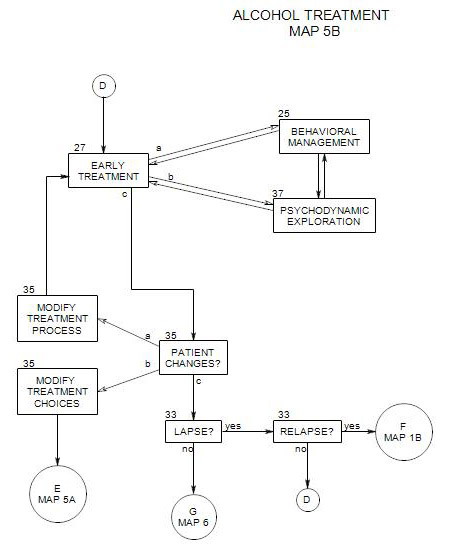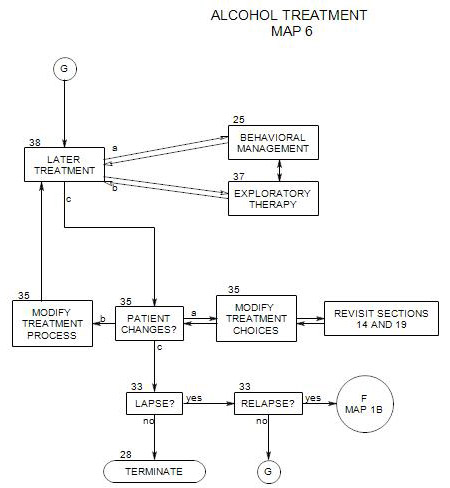43. COMMON SIGNS AND SYMPTOMS OF RELAPSE
- This section coordinates with Section 25 [Avoiding Relapse] and Section 33 [Dealing with Relapse]
The following symptoms are intended to be ordered, from low to high, regarding likelihood of relapse if present. They may also be used as soft signs that a person has already relapsed and hasn’t reported it.
To use this list, keep track, for each patient, of the symptoms that have in the past been signals of the need to drink, and teach him/her to watch for changes in those symptoms as signs that s/he is at risk for a relapse. Watch for mention of these and others during treatment, and consider them seriously if family or friends tell you about them relative to your patient.
- Apprehension about well-being
- Denial
- Adamant commitment to sobriety
- Compulsive attempts to impose sobriety on others
- Defensiveness
- Compulsive behaviors
- Impulsive behaviors
- Tendencies to loneliness
- Tunnel vision
- Minor depression
- Loss of constructive planning
- Plans begin to fail
- Idle daydreaming and wishful thinking
- Feelings that nothing can be solved
- Immature wish to be happy
- Periods of confusion
- Irritation with friends or family
- Easily angered
- Irregular eating habits
- Listlessness
- Irregular sleeping habits
- Progressive loss of daily structure
- Periods of deep depression
- Irregular attendance at treatment
- Development of “I don’t care” attitude
- Open rejection of help
- Dissatisfaction with life
- Feelings of powerlessness and helplessness
- Self-pity
- Thoughts of social drinking
- Conscious lying
- Complete loss of self-confidence
- Unreasonable resentments
- Discontinues all treatment
- Loneliness, frustration, anger, tension
- Starts controlled drinking
- Loss of control
